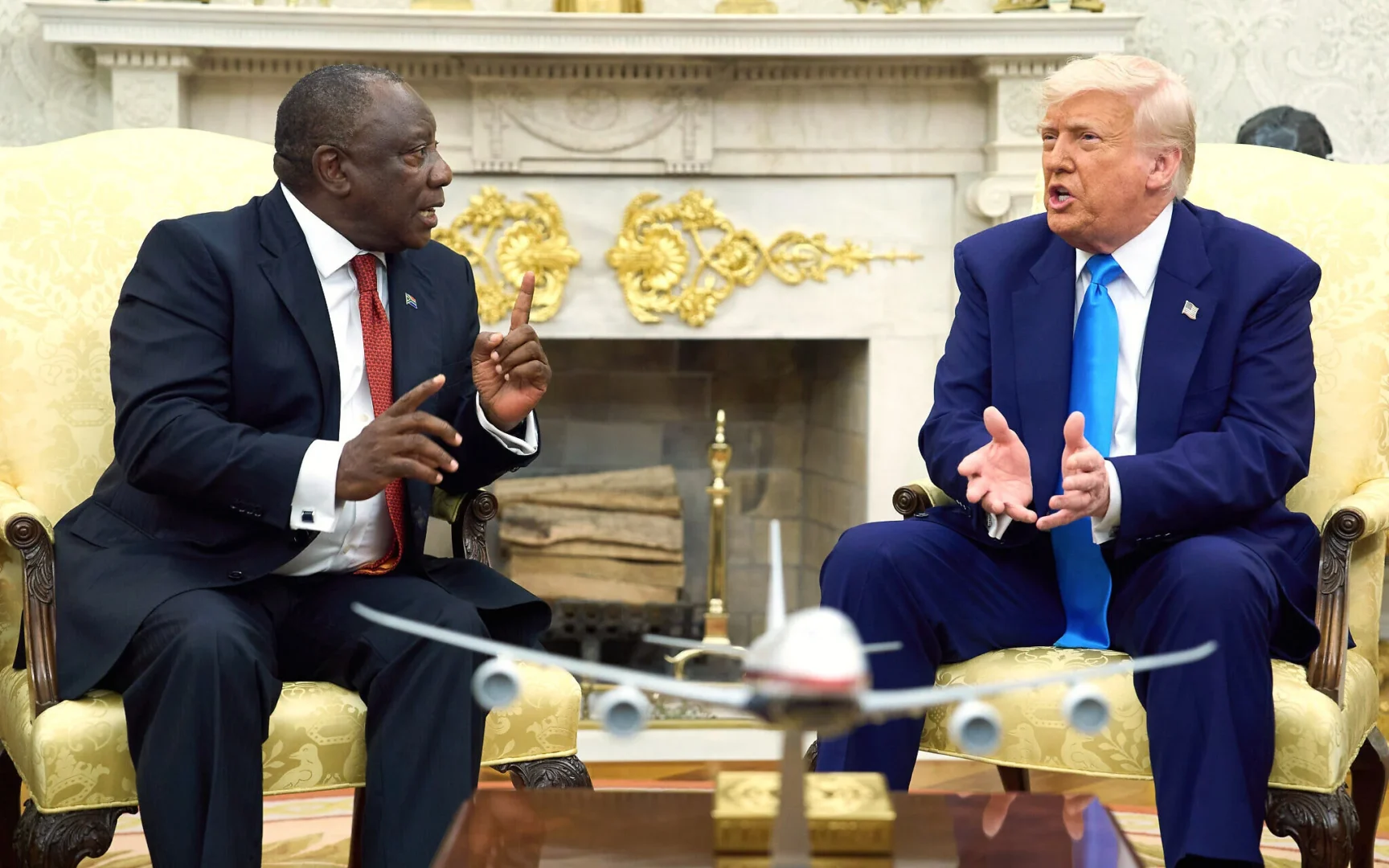JOHANNESBURG, SOUTH AFRICA — South African President Cyril Ramaphosa’s recent visit to the White House for a meeting with U.S. President Donald Trump was met with considerable apprehension in his home country.
One newspaper headline starkly encapsulated the prevailing mood, describing his mission as “Into the mouth of Trump hell.” Many South Africans feared that President Ramaphosa would endure a public rebuke akin to the one Trump and Vice President JD Vance had reportedly delivered to Ukrainian President Volodymyr Zelenskyy before the world’s media just three months prior.
However, despite being confronted by President Trump with unsubstantiated claims of widespread killings of white farmers in South Africa – and even being shown a video featuring a fringe South African politician repeating a chant referencing such killings – President Ramaphosa appeared to downplay the dramatic nature of the Oval Office encounter.
Addressing reporters afterward, he remarked, “You wanted to see drama and something big happening. I’m sorry that we disappointed you somewhat.” This understated reaction is characteristic of Ramaphosa, who is widely known in South Africa as a calm and measured politician, rarely given to emotional displays.
Ramaphosa’s reputation for composure was forged in some of South Africa’s most challenging and high-stakes political negotiations. He famously served as the African National Congress (ANC) party’s chief negotiator during the pivotal talks in the early 1990s that ultimately dismantled the apartheid system of white minority rule, which had enforced racial segregation for nearly half a century.
Following the end of apartheid, he was considered by some to be the natural successor to Nelson Mandela as president, though he did not immediately assume the role. He later returned to the political arena, becoming president in 2018.
President Ramaphosa had actively sought the meeting with President Trump with the dual objectives of correcting what he perceived as mischaracterizations of South Africa by the U.S. and pursuing crucial new trade agreements.
This diplomatic outreach, however, was not universally supported at home. Many South Africans expressed reluctance for him to engage with an administration that had repeatedly leveled serious and false allegations against their nation, including President Trump’s recurrent claims of a “genocide” targeting white farmers.
College student Dumisani Mnisi in Johannesburg articulated this sentiment, stating, “I honestly don’t understand why Ramaphosa is actually in the United States when Trump has made it very clear how he feels about South Africa.”
Also Read: Ramaphosa calls White South Africans leaving for US “cowards,” predicts their return
According to President Ramaphosa’s spokesperson, the public display in the Oval Office – including the video and newspaper clippings of farm murders presented by Trump – constituted “an orchestrated show for the cameras,” suggesting that the substantive discussions took place during the subsequent closed-door meeting.
Following that private session, President Ramaphosa expressed satisfaction, listing what he considered significant achievements to bring home from Washington. He indicated that he believed he had persuaded President Trump to attend the Group of 20 (G20) summit in South Africa in November, despite the Trump administration’s earlier announcement of a boycott.
South Africa is slated to hand over the rotating G20 presidency to the U.S. next year. Ramaphosa conveyed his belief that he had begun to shift Trump’s perspective on South Africa, though he conceded this would likely be “a process.”
He also reported that talks had commenced on various areas of trade and cooperation.
Concluding his remarks, Ramaphosa noted that the South African delegation had received souvenirs from their White House visit, and that he and Trump had exchanged books as gifts.
“So that was good,” Ramaphosa concluded.

